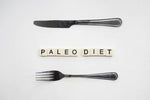National Grain Free Day: Should We All Be Grain Free?

Grains, commonly referred to as ‘cereals’ or ‘cereal grains’, are the edible seeds of specific grasses belonging to the Poaceae (also known as Gramineae) family. In recent years grain-free diets have become increasingly popular for people and pets alike! Many pet food companies are experts at advertising and quick to promote “trendy” diets, even if they may not be the best food for your pet, and with the conflicting media reports about their pros and cons it can be confusing to have grain or not to have grain?
Grain-free diets exclude all grains and grain-derived products but allow for small amounts of pseudocereals. However, they can include as much fruit, vegetables, meat, eggs, dairy, legumes, nuts, sugar, and fat. While many people are trying keto diets or grain free diets for themselves and their pets, nutritionists and experts who promote healthy eating habits do not necessarily prescribe these.
If you ask the experts, nutritionists, doctors and veterinarians alike, many will say you should be eating a well balanced diet that includes whole grains (unless you have a specific allergy). However, even a gluten allergy doesn’t mean you must be grain free. In fact, most whole grains are naturally gluten-free.
In an article from Diabetes Canada they discussed misconceptions surrounding grains and diabetes stating, “It’s a fallacy that people with diabetes should avoid grains,” says Joanne Lewis, a registered dietitian and certified diabetes educator, and director of healthy eating and nutrition programming at Diabetes Canada. “This misconception stems from the fact that grains contain carbohydrates, and carbohydrates raise blood sugar levels. The key is to choose healthy grains that offer health benefits, and avoid highly processed and refined grains.”
So what can we learn or take away from eating grain-free diets, what grains are good for us and what should we actually be avoiding? Read on to find out about grain-free benefits and how other diabetics are including whole grains into their healthy, balanced diet.
What can we learn and take from grain-free diets?
Grains CAN be unhealthy, contribute to weight gain or cause blood sugar spikes if you are having the wrong kinds, or having too many servings per day. The kind of grain is important!
Highly processed and refined grains have less fiber and are stripped from key nutrients. Instant oatmeal and sugary breakfast cereals are examples of items to avoid! We should always be choosing the grains that are the least processed because the more processed, refined, and additives, the more it can affect blood sugar readings differently. For example, instant oatmeal is going to have more sugar, and has been processed to cook more quickly. It is also broken down and digested more quickly by your body, giving it a higher glycemic index.
Overall, the media and marketing companies telling us to “go grain free” might be an easier message to spread than explaining how not all grains are created equal, and the benefits and dangers of the different kinds. Refined grains must be avoided, such as white bread, white rice, and deep-fried or extra breaded foods as they will quickly increase blood sugar. Grain-free and gluten free products can be packed with additives, and gums. Instead of worrying whether it is grain free - it is better to look at the ingredient list and find foods with whole grain as the first ingredient (with a short list of ingredients), a quinoa salad or bowl of oatmeal.
Why are whole grains good for you?
Whole-grain foods contain a variety of beneficial nutrients, and research shows they are associated with a decreased risk of heart disease, stroke, and type 2 diabetes. For those with diabetes, choosing whole grains over refined grains can help to maintain optimum blood sugar readings. Additionally, whole grains can and should be eaten (in moderation) to satisfy cravings and keep you fuller, longer. The fiber found in grains is one of the biggest benefits to feeling full and satisfied as well as helping with digestion.
When choosing what grains to include in your weekly meal plan, choose whole wheat, whole oats, whole rye, and brown rice. Compared with other types of grains, whole grains are better sources of fiber and other important nutrients, such as B vitamins, iron, folate, selenium, potassium and magnesium.
The Bottom Line
It can be hard to keep track of the do’s and don’ts, and new information as we navigate our healthy lifestyles. Overall, it is recommended that whole grains are included in a healthy balanced diet for most people including people with type 2. Keep in mind the portions and kind of whole grains you choose every day.
Millions of people with type 2 diabetes are asking what they should eat, and you're not alone. Every day, people around the world connect in our active online community Winning Type 2 Diabetes Together, to share advice, get support, and help each other live healthier fuller lives, despite their chronic conditions. It’s a movement changing lives across the globe. Join the community here. Learn more about the best whole grains for type 2’s here.




